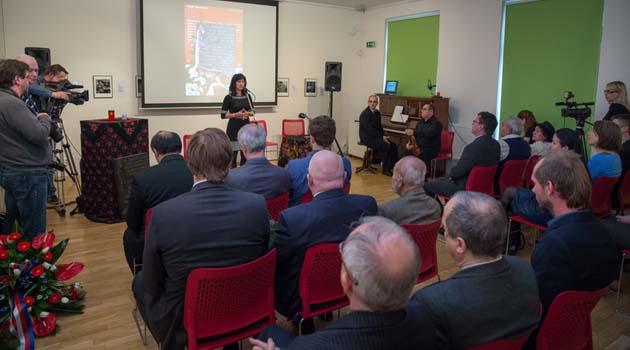Czech Republic: Record numbers of parents seek after-school tutoring for their children from Museum of Romani Culture

During the past school year the trend of Romani parents seeking tutoring for their children has reached an all-time high in Brno, Czech Republic. The observation that the Romani community is becoming more and more aware of how necessary an education is to a successful future is being confirmed.
The Museum of Romani Culture in Brno, which offers tutoring to pupils, accepted 25 % more applicants this year than it did last year and had to find new volunteers to meet the demand. Similar programs could aid children after the new law on inclusive education takes effect in the schools in September.
Seven-year-old Vojta, for example, spent part of the school year in Great Britian, where he attended first grade. When his family returned to the Czech Republic and he transferred into a Czech school, not only did he have big problems with reading, but his classmates laughed at him, so his mother, Simona Horváthová, asked the Museum of Romani Culture for help.
“I have finally come away from a class meeting please with the results, Vojta has greatly improved, his teacher even praised him and wants to focus on him, I am very glad. I keep telling the children they can’t end up like we did, on the rolls at the Labor Office, they must strive to learn and so much more,” Horváthová said after her son attended tutoring four days a week.
The boy will also be tutored during summer in order to catch up to his classmates by the time second grade begins. Just like Vojta, 74 other children attend after-school tutoring at the Museum of Romani Culture, most of them once a week.
There are 57 volunteers and five external instructors aiding them with their school preparations, who have taught a total of 1 800 hours this year. “The demand, however, already exceeds our options in terms of capacity and space, we have had to put our recreational groups on the back burner in order to concentrate on these educational activities. Enormous thanks belong to all the volunteers, for whom this year was actually quite demanding,” said Museum director Jana Horváthová.
The director said nine ninth-graders who received tutoring and then sat for entrance examinations into secondary school were a great satisfaction to all involved – six of them will continue their secondary school studies at institutions that will give them a diploma and the rest will attend vocational school. Teachers also assess the Museum’s tutoring activities positively.
“If the pupils learn a certain degree of responsibility, of steadiness when it comes to their own education, that is certainly a good thing. Many pupils do not have the option of getting help from somebody in their family, and tutoring is the only option they have for catching up when it comes to problematic subject matter,” said Bohumila Kroupová, a teacher at Brno’s Husova Primary School.
She warns, however, that for such measures to work the interest of the entire family and the pupils must be genuine. Sometimes children or parents
believe problematic situations will be resolved by tutoring but then do not attend regularly.
“That’s why it’s quite appropriate to collaborate closely with the school and give the school information about the child’s tutoring,” said the sixth-grade teacher, who has seven Romani children in her class. Her words are also confirmed by the tutoring program coordinator at the Museum, Petra Banďouchová: “Tutoring is largely about communication, and with our aid the communication becomes better among all parties – the children, their parents, and the school. This is a process of building relationships and trust, and it takes some time. However, we already have results, even those parents who had previously had bad experiences or who didn’t believe us in the beginning are coming to ask about our services and collaborate with us.”
The Museum, which is headquartered right in the center of Brno’s excluded Cejl locality, has been offering tutoring for 12 years now. During that time it has aided almost 1 000 children with preparing for school, or about one-fifth of all the Romani minors now in Brno.
The facility would like to capitalize on its experience this fall, when the new law on inclusive education takes effect. “The new law is certainly a challenge for the Czech schools, but it is also an opportunity to eliminate the segregation in education that continues to exist in relation to Romani and other children. The Museum of Romani Culture has long aided individuals with achieving the best education they can through tutoring and other support. Schools and other entities interested in inclusion when it comes to Romani children need to know we are available and we will continue to work intensively in this area as well,” the director said.
